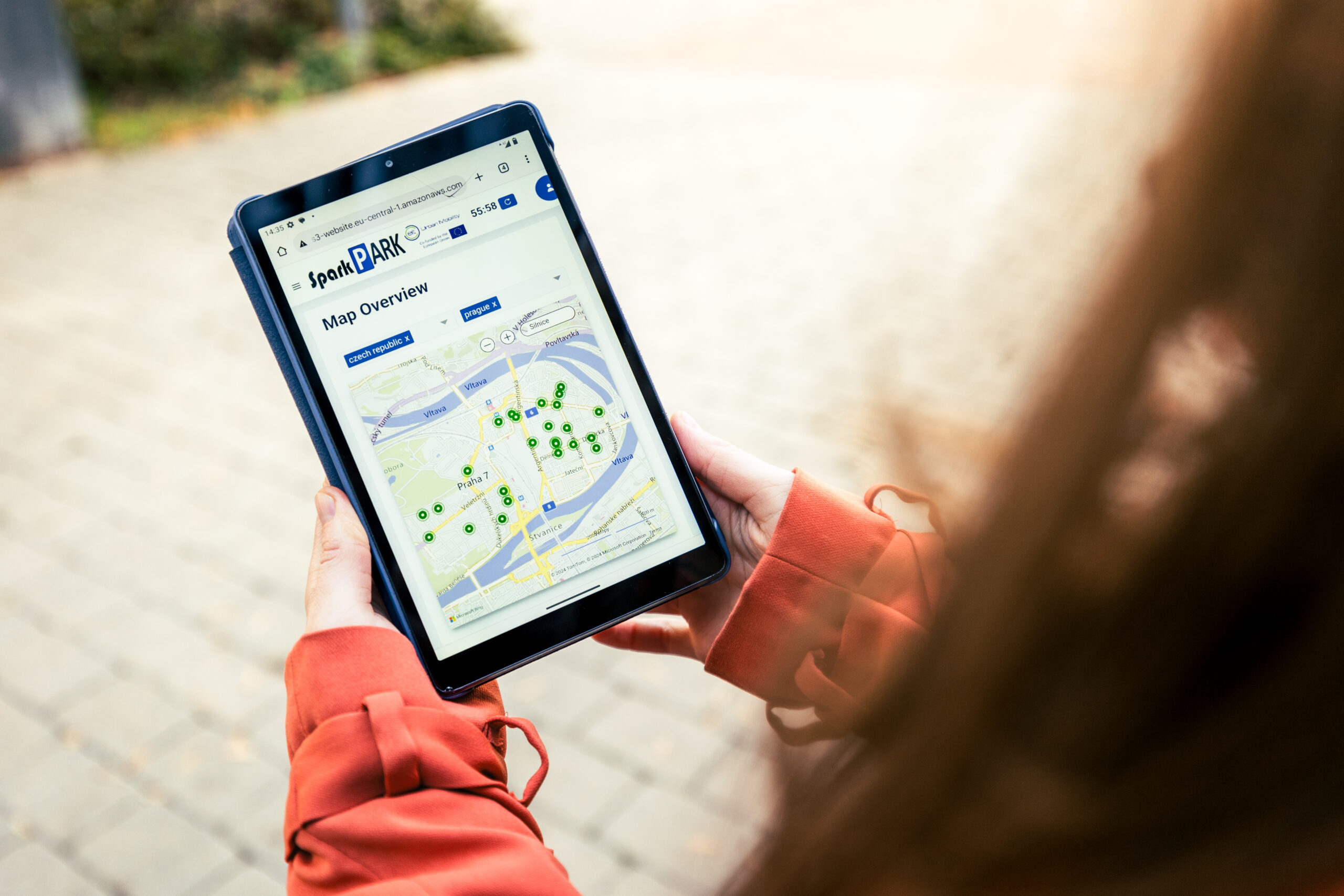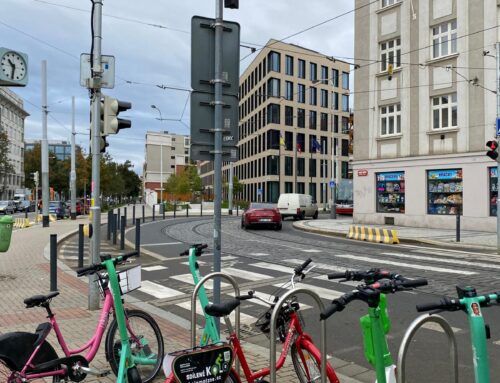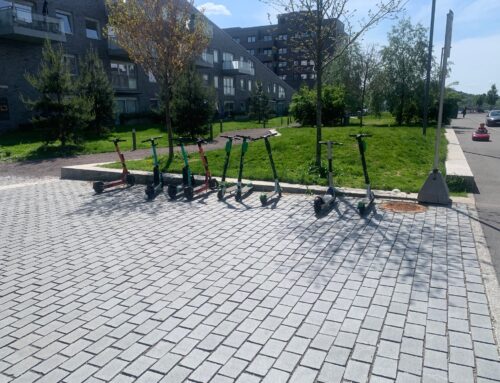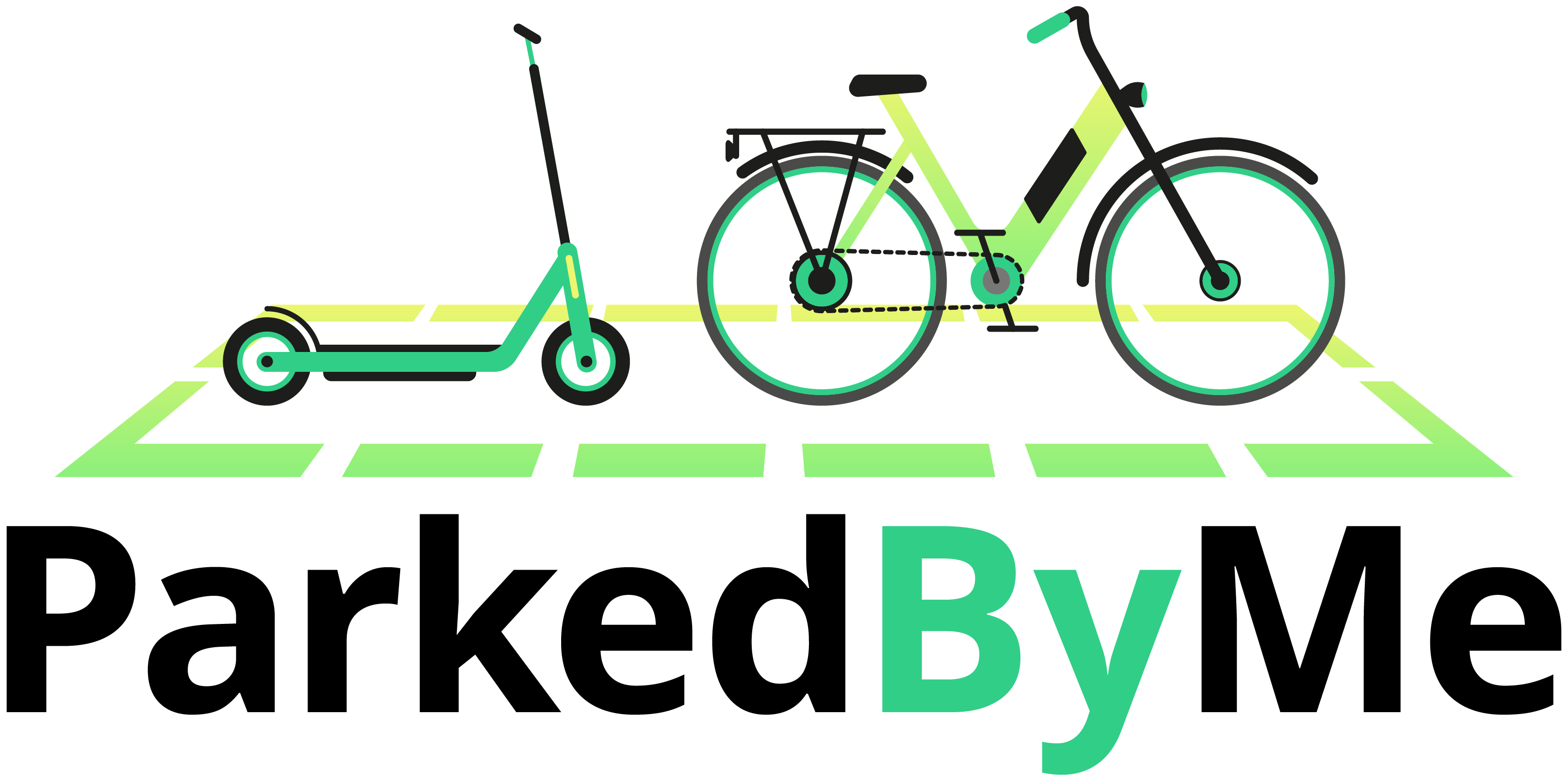As shared micromobility expands across Europe, cities face growing challenges in integrating e-scooters, e-bikes, and shared bicycles into urban environments. Issues like improper parking, street clutter, and public safety concerns have sparked different responses across the continent. Cities such as Madrid and Paris have implemented strict bans on dockless micro-mobility services. Other cities and operators opt for “soft measures” like rewards and user training or designated parking areas to discourage improper parking behaviours. Others, like Prague, opt for innovative solutions to address these challenges.
Enter the ParkedByMe project—an initiative led by a collaboration between the Czech research and innovation organization PowerHUB, Barcelona-based foresight consultancy FACTUAL, and Norwegian startup SparkPark, with support from EIT Urban Mobility. ParkedByMe aims to tackle the problem of improperly parked shared vehicles through high-precision Bluetooth parking technology, ensuring tidier streets and enhancing urban mobility systems.
Two sides of the coin: Prague’s Forward-Thinking Approach and Madrid’s e-scooter ban
While cities like Madrid have opted to ban e-scooters due to parking challenges, Prague is taking a different approach by piloting advanced technology to integrate dockless shared mobility services better.
In Prague 7, 25 pilot locations were identified in partnership with the local municipality. SparkPark’s cutting-edge Bluetooth sensors were installed to ensure vehicles can only be parked within precisely defined zones. To test the system, bike-sharing operator, KolemPlzne, joined the pilot and integrated their bike-sharing app with the SparkPark back-end system for precise parking of vehicles. They provided necessary traffic data and practical feedback on how the technology works in real-world conditions.


Prague tests ParkedByMe parking solution
Feedback collected from the group of KolemPlzne shared bike users highlights the accessibility, simplicity, and practicality of micromobility services. Users praised the ease of use, flexibility, and convenience of shared bikes, emphasising additional benefits such as physical activity, stress relief, and faster travel in areas with insufficient public transport. Most users reported minimal difficulty locating available bikes, rating the experience between 1 and 2 on a scale of ease.
However, users also raised concerns regarding safety, particularly the narrow bike lanes and proximity to traffic. Issues like improper parking, usage on pathways, theft risks, and maintenance challenges—such as exposure to weather or low battery—were mentioned. Regarding parking experience, users generally did not perceive a noticeable change with the new technology. Key pain points mentioned in prior parking systems included GPS inaccuracies, which sometimes led to challenges in returning bikes and extended wait times for locating designated parking zones.
Insights from Madrid citizens: Survey Findings
Due to the sudden ban on kick-scooters, ParkedByMe surveyed a group of Madrid citizens to gather views on the city’s bike-sharing system (biciMAD) and micromobility parking.
Overall, citizens praised biciMAD as a strong complement to public transport, particularly for short to medium trips. However, some users highlighted challenges such as insufficient parking spaces and docking stations, often forcing them to leave bikes next to full docks—underscoring the need for solutions like ParkedByMe to improve parking management. ParkedByMe can facilitate hybrid bike-sharing systems (bike-sharing based on a combination of docked and virtual parking stations), improving users’ proximity to bike stations and bike availability in an affordable way.
Data-backed benefits of ParkedByMe
Although designated parking spaces can reduce street clutter, relying on GPS only to restrict parking in designated parking spots comes with significant disadvantages. The GPS signals of micro-mobility vehicles can be inaccurate, particularly in densely built areas or areas with tall buildings like many city centres. This can lead users to park outside the designated parking spots, thinking that they have parked properly and according to local rules and regulations.
In our Prague pilot, we found that over the 7 analysed days (each covering 24h periods) demonstrate that 42,1-55,6% of vehicles, from the 3 shared micromobility operators tracked, were parked outside the designated parking spot. On average, the vehicles were parked outside the parking spot from 20-24,7 minutes. These results indicate high fluctuation of rentals but also remaining problem that around ½ of vehicles is parked in the proximity but still outside the designated areas.
The pilot testing from 4 October to 10 November demonstrated that the overall performance of Bluetooth-based Sparkpark antenna recorded 90,6 % success rate compared to GPS/GNSS-based positioning of the vehicles which records only 38,4 % success rate. SparkPark consistently demonstrated high accuracy in detecting parking events across all dates, with success rates close to or at 100%, thus making it valuable technological solution for high-precision positioning especially in urban areas with relatively high buildings and narrow streets and clearly emphasizing its strong competitive advantage over GPS/GNSS localisation services.
Showcasing ParkedByMe at Leading Events
The innovative approach of the ParkedByMe project has been showcased at prominent events, highlighting its transformative impact on the mobility sector while serving as an excellent platform to connect with potential clients and stakeholders. At URBIS – The Smart Cities Meetup in Brno, the Czech Republic’s Transport Minister, Martin Kupka, praised the project for its potential to redefine shared mobility management.
The project also had a booth at the Tomorrow.Mobility and Smart Cities World Expo in Barcelona, where the ParkedByMe team held demonstrations in situ and showed how high-precision parking technology can revolutionise shared vehicle parking and improve urban infrastructure.




